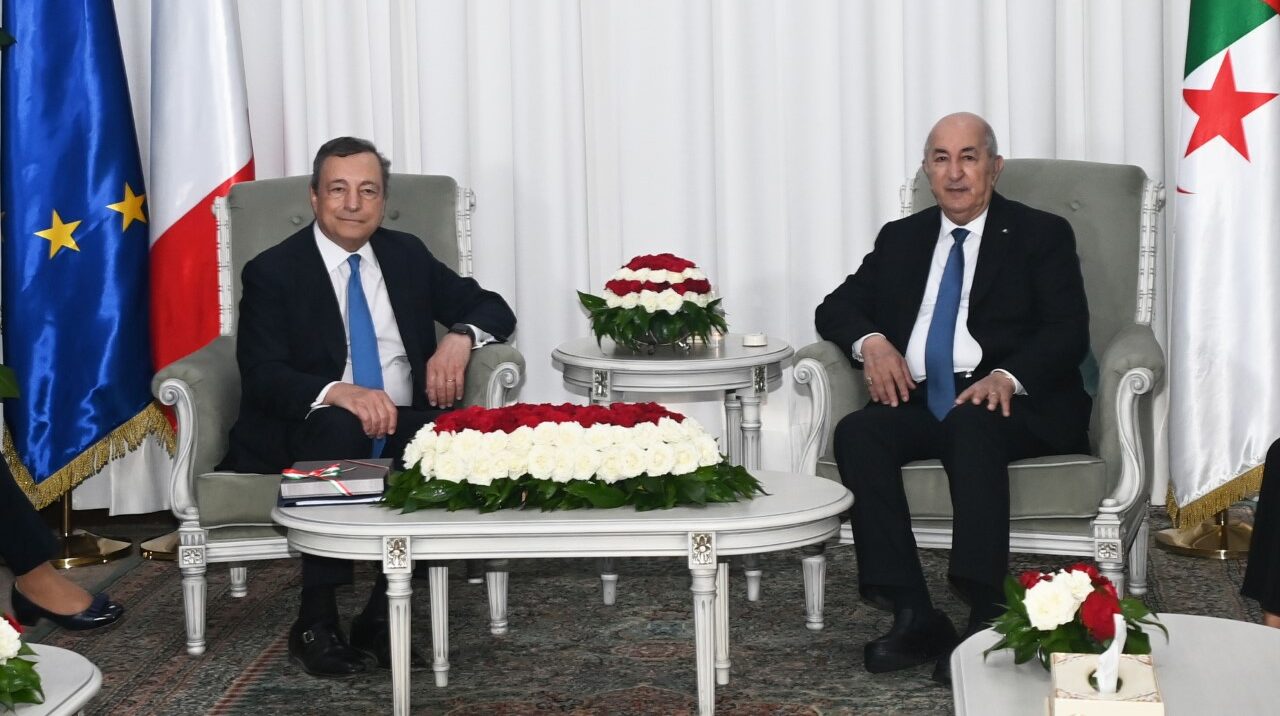All military maneuvers between Algeria and Russia

Algeria and Russia have started a military exercise in the Mediterranean. In light of relations with the Kremlin and the crisis with Spain, can Algerian gas be reliable for Italy? Here are facts and analysis
The Algerian defense minister announced that Algeria and Russia yesterday began a joint military exercise in the Mediterranean Sea. It will last four days, but no more details have been provided.
On Tuesday a group of Russian warships docked at the port of Algiers. Already last month the port of Jijel, in north-eastern Algeria, had hosted a minesweeper of the Russian navy. Algeria is a major buyer of Russian arms.
ALGERIA DOES NOT CONDEMN RUSSIA TO THE UN
Last week Algeria – along with India, China and thirty-two other countries – abstained from the UN General Assembly resolution to condemn the (illegal) annexation of four regions of Ukraine to Russia. However, the resolution was supported by 143 nations, the highest number ever recorded since the Russian invasion began.
THE CONSEQUENCES FOR ITALY
The abstention of Algeria is very important for Italy, given that the country has become our largest supplier of natural gas, allowing us to reduce our dependence – very strong, until 2021 – on Russia.
In April Eni signed an agreement with the Algerian oil company Sonatrach for the gradual increase of gas flows to Italy: in 2022 the additional billion cubic meters will be 4, which will reach 9 in 2024.
IS ALGERIAN GAS RELIABLE?
In April, Startmag had already reported that Algeria may not prove to be a reliable supplier for Italy, having already proved – with Spain – to subordinate the volumes and conditions of gas exports to the state of political relations with customers. , "Punishing" those governments accused of ingesting or hindering its business.
THE LIMES ANALYSIS
In this regard, an analysis by Michele Soldavini (entitled How reliable is Algerian gas? And present in issue 8/22) appears in the geopolitical magazine Limes , who writes that “in March, Algiers calls back its ambassador. In April, he directly threatened Madrid to stop supplies also through Medgaz if resales of Algerian gas to "third parties" (ie in Rabat) are found. The Spanish government denies and argues that the volumes (so far very low) recorded in the north-south direction at the Tarifa crossing are regasified LNG. However, it is difficult to verify this: once it has been put into circulation, it can be said with good approximation that traces of the origin of the imported gas are lost. This argument, therefore, remains available to Algerians in the event of future tightening of bilateral relations. At the beginning of June, Algiers increases the dose: it suspends a friendship treaty dating back twenty years and threatens the breakdown of commercial relations, of which the promised expansion of the maximum capacity of Medgaz from 8 to 11 billion cubic meters per year is the first victim " .
Italy, Soldavini explains, “could perhaps benefit from a possible total closure of the pipeline, at least in the short-medium term, while Spain can cushion the blow because it has the maximum regasification capacity in Europe, largely underutilized. There are seven terminals for a total of 66.3 billion cubic meters of theoretical capacity per year, of which thirty have been used in the last twelve months. However, the main obstacle to LNG's role as a continental hub is represented by the low capacity (just over 7 billion smc per year) at the Franco-Spanish crossings in the Pyrenees. There are only two of them, in the Basque Country (Irún) and in Navarre (Larrau). The interconnections from populous Catalonia are completely absent, even if the MidCat project is understandably back in great shape and the urgency is aired from many quarters. Consequently, a viable route (albeit more expensive) is that of reloading LNG from Spanish ports to other continental terminals: in August there was a record of 0.7 billion smc re-exported, of which 0.5 towards the Italy".
WHAT ITALY CAN LEARN
According to Limes , the Algerian-Spanish affair “shows us two things. First of all, a certain diplomatic ease on the Algerian side to involve the export of gas in the geopolitical disputes underway with Morocco (and in their potential aggravation). Alternatively, a production reality probably not up to the commitments made during the bilateral meetings. In both cases, albeit on the basis of the good relations of Matteo's memory [with Italy, ed ], prudence and diversification of risk are required ”.
ALGERIA LOOKS TO THE BRICS
At the end of July, the president of Algeria, Abdelmadjid Tebboune, said that his country would be interested in joining the BRICS , the group that brings together Brazil, Russia, India, China and South Africa.
The BRICS are not a real alliance. At the June 2022 summit, however, Russian President Vladimir Putin invited the other members of the group to work for the "formation of a truly multipolar system of intergovernmental relations". In this regard, Tebboune – who attended the June meeting as a guest – said that "the BRICS interest us" because they represent an alternative to traditional power centers and because "they constitute an economic and political force".
This is a machine translation from Italian language of a post published on Start Magazine at the URL https://www.startmag.it/mondo/algeria-russia-esercitazioni-militari-mediterraneo/ on Thu, 20 Oct 2022 13:37:53 +0000.
